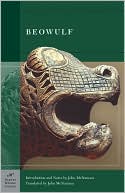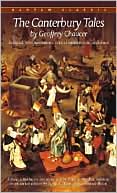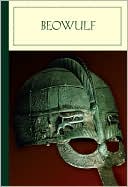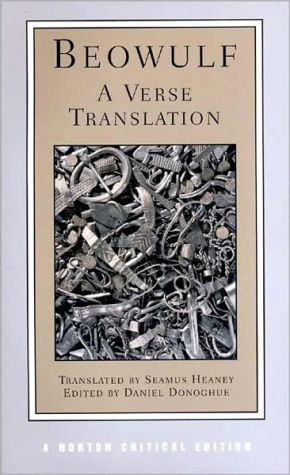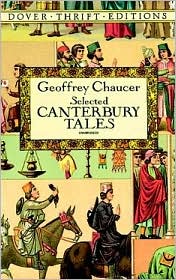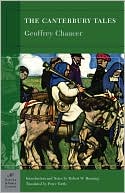Beowulf: A New Verse Translation
Composed toward the end of the first millennium of our era, Beowulf is the elegiac narrative of the adventures of Beowulf, a Scandinavian hero who saves the Danes from the seemingly invincible monster Grendel and, later, from Grendel's mother. He then returns to his own country and dies in old age in a vivid fight against a dragon.\ The poem is about encountering the monstrous, defeating it, and then having to live on in the exhausted aftermath. In the contours of this story, at once remote...
Search in google:
"A faithful rendering that is simultaneously an original and gripping poem in its own right." —New York Times Book ReviewThe Onion A.V. Club - Keith PhippsIt's strange and unexpected, but also appropriate and heartening, that Beowulf ground zero for literature in English--would become a bestseller at the dawn of the 21st century. Why becomes less of a mystery after even a quick glance at this extraordinary translation by Seamus Heaney. A work of great grace, Heaney's translation captures the sense of Old English poetry without adhering slavishly to its rules; when possible, he retains the alliteration and caesuras but never bends his voice to suit them. The result is a Beowulf of rough elegance and emotional directness rendered in a voice both ancient and familiar. Heaney needs these qualities: Anyone who takes up the task of translating Beowulf inherits not just Grendel and the dragon, but also long, occasionally cryptic passages of more mundane activities. James Joyce once said of Ulysses that if Dublin were ever destroyed, he hoped it could be rebuilt from his descriptions. So it is with Beowulf, not in a physical sense but a cultural one. Heaney understands and is consistently capable of conveying the subtle ideals and ethical codes embedded in the poem alongside its famous blood and gore. But, aside from Heaney's skill as a translator, why is Beowulf striking a chord now? The threat of a demon at the door may no longer have the immediacy it did for Beowulf's original audience, but if the past century proved anything, it's that the fabric of civilization, however tightly bound by honor and blood, can be torn asunder at any moment. As a slathering beast of flesh and blood, Grendel may seem a relic of centuries past, but as a symbol, he hasn't lost a bit of power. Heaney writes in his introduction that part of what allowed him, as an Irishman, to overcome the inherent Englishness of the poem was its overwhelming, universal melancholy, which also can't be factored out when calculating Beowulf's continued appeal: The inescapability of death and the transience of all things permeates it from its first lines to its conclusion. The work of a culture deeply concerned with these issues, rewritten by a poet working within a culture caught up in immediate pleasures and uncomfortable reflecting on final things, Heaney's Beowulf has an added resonance. In his hands, the past becomes immediate, and what it knew reads as inherited wisdom. From a famous early passage detailing the funeral of a king set adrift at sea: "No man can tell / no wise man in hall or weathered veteran / knows for certain who salvaged that load".
\ \ \ \ \ Chapter One\ So. The Spear-Danes in days gone by\ and the kings who ruled them had courage and greatness.\ We have heard of those princes' heroic campaigns.\ There was Shield Sheafson, scourge of many tribes,\ a wrecker of mead-benches, rampaging among foes.\ This terror of the hall-troops had come far.\ A foundling to start with, he would flourish later on\ as his powers waxed and his worth was proved.\ In the end each clan on the outlying coasts\ beyond the whale-road had to yield to him\ and begin to pay tribute. That was one good king.\ Afterwards a boy-child was born to Shield,\ a cub in the yard, a comfort sent\ by God to that nation. He knew what they had tholed,\ the long times and troubles they'd come through\ without a leader; so the Lord of Life,\ the glorious Almighty, made this man renowned.\ Shield had fathered a famous son:\ Beow's name was known through the north.\ And a young prince must be prudent like that,\ giving freely while his father lives\ so that afterwards in age when fighting starts\ steadfast companions will stand by him\ and hold the line. Behaviour that's admired\ is the path to power among people everywhere.\ Shield was still thriving when his time came\ and he crossed over into the Lord's keeping.\ His warrior band did what he bade them\ when he laid down the law among the Danes:\ they shouldered him out to the sea's flood,\ the chief they revered who had long ruled them.\ A ring-whorled prow rode in theharbour,\ ice-clad, outbound, a craft for a prince.\ They stretched their beloved lord in his boat,\ laid out by the mast, amidships,\ the great ring-giver. Far-fetched treasures\ were piled upon him, and precious gear\ I never heard before of a ship so well furbished\ with battle tackle, bladed weapons\ and coats of mail. The massed treasure\ was loaded on top of him: it would travel far\ on out into the ocean's sway.\ They decked his body no less bountifully\ with offerings than those first ones did\ who cast him away when he was a child\ and launched him alone out over the waves.\ And they set a gold standard up\ high above his head and let him drift\ to wind and tide, bewailing him\ and mourning their loss. No man can tell,\ no wise man in hall or weathered veteran\ knows for certain who salvaged that load.\ Then it fell to Beow to keep the forts.\ He was well regarded and ruled the Danes\ for a long time after his father took leave\ of his life on earth. And then his heir,\ the great Halfdane, held sway\ for as long as he lived, their elder and warlord.\ He was four times a father, this fighter prince:\ one by one they entered the world,\ Heorogar, Hrothgar, the good Halga\ and a daughter, I have heard, who was Onela's queen,\ a balm in bed to the battle-scarred Swede.\ The fortunes of war favoured Hrothgar.\ Friends and kinsmen flocked to his ranks,\ young followers, a force that grew\ to be a mighty army. So his mind turned\ to hall-building: he handed down orders\ for men to work on a great mead-hall\ meant to be a wonder of the world forever;\ it would be his throne-room and there he would dispense\ his God-given goods to young and old—but\ not the common land or people's lives.\ Far and wide through the world, I have heard,\ orders for work to adorn that wallstead\ were sent to many peoples. And soon it stood there,\ finished and ready, in full view,\ the hall of halls. Heorot was the name\ he had settled on it, whose utterance was law.\ Nor did he renege, but doled out rings\ and torques at the table. The hall towered,\ its gables wide and high and awaiting\ a barbarous burning. That doom abided,\ but in time it would come: the killer instinct\ unleashed among in-laws, the blood-lust rampant.\ (Continues...)
IntroductionixA Note on NamesxxxiBeowulf2Family Trees217Acknowledgements219
\ From Barnes & NobleWho's Afraid of Beowulf? \ Seamus Heaney, recipient of the Nobel Prize in Literature and considered by many to be the greatest living poet writing in English, has produced a new work that will be one of the most significant literary events of the year. This meditation on fame, blood feuds, and the culture of war, already awarded the Whitbread Prize for poetry and named the Whitbread Book of the Year, addresses some of the most important issues of our world at the turn of the millennium. The trouble is, it was written in the first millennium, more than a thousand years ago: Heaney's latest offering is not a collection of original poems or essays, but a modern English verse translation of that greatest of heroic epics, Beowulf.\ Heaney's project is to save Beowulf and what he calls its status as a work of "the greatest imaginative vitality" from the tedium of required English courses in high schools and universities. Because of its arcane language, this gripping and beautifully wrought story is largely impenetrable to modern audiences. What's more, just as Beowulf's language and structure paved the way for modern English and its literary devices, its themes of fame and warrior cultures can tell us a lot about the world we now inhabit, where fame is viewed as perhaps the only thing worth achieving, and intractable ethnic conflicts wreak havoc on humankind. Some things never change -- or, as Heaney puts it, BEOWULF "lives in its own continuous present, equal to our knowledge of reality in the present time."\ The tale is simple, and yet complex in its telling. It is composed of three main sections that center on a mortal battle: Beowulf's fight with Grendel the monster in the hall of a Danish king; his underwater battle with Grendel's mother, who is bent on revenge; and, finally, 50 years later, Beowulf's death at the hands of a third monster, a dragon accidentally awakened in Beowulf's own kingdom. Each sequence, narrated by an anonymous speaker who is familiar with the customs and laws of the Scandinavian people who make up the epic's characters, follows a similar pattern. First, there is a suspense-producing buildup in which the monster makes its presence known and begins its rampage; then, Beowulf's arrival on the scene and the ensuing battle to the death; and lastly a taking of stock -- in the first two cases, a celebration of the monster's defeat, and in the final sequence, in which the dragon is killed at the cost of Beowulf's life, a period of mourning. Interwoven with these main tales are many diversionary stories, and a series of pronouncements that define the role of the hero and the ethics of war, friendship, and death.\ As in Homer, certain powerful phrases and titles, such as "Hrothgar the ring-giver," recur throughout the epic, lending it a comforting and rhythmic certainty. Heaney has divined an odd and mannered lyricism in the Old English and reproduced it in a fresh and compelling way in our own familiar tongue. In his introduction, Heaney speaks of the respect he had as a child for the plain and solemn voices of his father's Northern Irish relatives and how he wanted his translation "to be speakable by one of those relatives." It is filled with simple and direct turns of phrase, such as the final sentence of a list of the virtues of Shield Sheafson, a Danish warrior-king: "That was one good king."\ Heaney's next accomplishment is that he remains faithful to Beowulf's confusing structure without losing the thread of the story. The main narrator often gives way to speeches by his characters, who will tell similar (but unrelated) stories of other great warriors. Through these digressions the setting develops, as do its surrounding ethical framework and dramatizing rituals, lending a deeper symbolic meaning to the archetypal actions of its great hero. Poets and bards occasionally appear to sing of more heroic deeds, and, in another instance of this ancient tale's surprising relevance for modern readers, the speaker argues for the descriptive powers of these poets in a self-referential manner that seems positively postmodern.\ Heaney has provided a rich and original translation of Beowulf that should dispel once and for all the "rumor" that it is a boring, repetitive tale filled with unpronounceable names. His new offering is vivid and at times breathtaking; it renews the timeless drama of an often-misunderstood epic.\ —Jake Kreilkamp\ \ \ \ \ \ Keith PhippsIt's strange and unexpected, but also appropriate and heartening, that Beowulf ground zero for literature in English--would become a bestseller at the dawn of the 21st century. Why becomes less of a mystery after even a quick glance at this extraordinary translation by Seamus Heaney. A work of great grace, Heaney's translation captures the sense of Old English poetry without adhering slavishly to its rules; when possible, he retains the alliteration and caesuras but never bends his voice to suit them. The result is a Beowulf of rough elegance and emotional directness rendered in a voice both ancient and familiar. Heaney needs these qualities: Anyone who takes up the task of translating Beowulf inherits not just Grendel and the dragon, but also long, occasionally cryptic passages of more mundane activities. James Joyce once said of Ulysses that if Dublin were ever destroyed, he hoped it could be rebuilt from his descriptions. So it is with Beowulf, not in a physical sense but a cultural one. Heaney understands and is consistently capable of conveying the subtle ideals and ethical codes embedded in the poem alongside its famous blood and gore. But, aside from Heaney's skill as a translator, why is Beowulf striking a chord now? The threat of a demon at the door may no longer have the immediacy it did for Beowulf's original audience, but if the past century proved anything, it's that the fabric of civilization, however tightly bound by honor and blood, can be torn asunder at any moment. As a slathering beast of flesh and blood, Grendel may seem a relic of centuries past, but as a symbol, he hasn't lost a bit of power. Heaney writes in his introduction that part of what allowed him, as an Irishman, to overcome the inherent Englishness of the poem was its overwhelming, universal melancholy, which also can't be factored out when calculating Beowulf's continued appeal: The inescapability of death and the transience of all things permeates it from its first lines to its conclusion. The work of a culture deeply concerned with these issues, rewritten by a poet working within a culture caught up in immediate pleasures and uncomfortable reflecting on final things, Heaney's Beowulf has an added resonance. In his hands, the past becomes immediate, and what it knew reads as inherited wisdom. From a famous early passage detailing the funeral of a king set adrift at sea: "No man can tell / no wise man in hall or weathered veteran / knows for certain who salvaged that load". \ — The Onion A.V. Club\ \ \ Publishers WeeklyWhen the great monster Grendel comes to Denmark and dashes its warriors' hopes, installing himself in their great hall and eating alive the valiant lords, the hero Beowulf arrives from over the ocean to wrestle the beast. He saves the Danes, who sing of his triumphs, but soon the monster's mother turns up to take him hostage: having killed her, our hero goes home to the land of the Geats, acquires the kingship, and fights to the death an enormous dragon. That's the plot of this narrative poem, composed more than a millennium ago in the Germanic language that gave birth (eventually) to our version of English. Long a thing for professors to gloss, the poem includes battles, aggressive boasts, glorious funerals, frightening creatures and a much-studied alliterative meter; earlier versions in current vernacular have pleased lay readers and helped hard-pressed students. Nobel laureate Heaney has brought forth a finely wrought, controversial (for having won a prize over a children's book) modern English version, one which retains, even recommends, the archaic strengths of its warrior world, where "The Spear-Danes in days gone by/ and the kings who ruled them had courage and greatness." Well-known digressions--a detailed dirge, the tale-within-a-tale of Hengest, "homesick and helpless" in ancient Friesland--find their ways into Heaney's English, which holds to the spirit (not always the letter) of the en face Anglo-Saxon, fusing swift story and seamless description, numinous adjectives and earthy nouns: in one swift scene of difficult swimming, "Shoulder to shoulder, we struggled on/ for five nights, until the long flow/ and pitch of the waves, the perishing cold drove us apart. The deep boiled up/ and its wallowing sent the sea-brutes wild." Heaney's evocative introduction voices his long-felt attraction to the poem's "melancholy fortitude," describing the decades his rendering took and the use he discovered for dialect terms. It extends in dramatic fashion Heaney's long-term archeological delvings, his dig into the origins of his beloved, conflicted--by politics and place--English language. (Feb.) Copyright 2000 Cahners Business Information.\|\ \ \ \ \ KLIATTLavishly and loudly, praise has rung out for Nobel laureate Heaney's new translation of Beowulf. For those with memories of the suffering and pain involved in Beowulf as being attached to reading the epic and not to the battles of its hero, this work will come as a delightful surprise. While here and there Heaney does use a word new to American ears (and unavailable in all but the largest or oldest dictionaries), this Beowulf is fun, often touching and usually quite animated. Beowulf crosses the sea to face the monster Grendel in hand-to-hand combat, swims down into murky waters to deal no less murderously with Grendel's vengeful mother, and, 50 years later, meets his death as he slays a giant fire-breathing dragon. For the younger reader, this is a tale of action and adventure. Beowulf reflects on his life and culture, however, and this can hold the interest of the older reader as well. In this bilingual edition, the original text appears on the left, but can be ignored at will. There are no footnotes, no glossary definitions, but Heaney's beautifully written introduction will aid the more mature reader. KLIATT Codes: JSA*—Exceptional book, recommended for junior and senior high school students, advanced students, and adults. 2000, Norton, 213p, 21cm, 99-23209, $13.95. Ages 13 to adult. Reviewer: Patricia A. Moore; Brookline, MA, May 2001 (Vol. 35 No. 3)\ \ \ \ \ Library JournalThere are over 20 translations of this Old English epic into modern English, from the prose version of E. Talbot Donaldson to the verse renditions of Burton Raffel and Stanley Greenfield. The appearance of this new translation by Nobel Laureate Heaney, and especially its replacement of the Donaldson Beowulf in the Norton Anthology, instantly elevates it in the canon. Recognizing that ordinary native English dialects still contain much of the vocabulary found in Old English, Heaney tries to evoke the diction and syntax of a living language. He captures the alliterative rhythm without monotony (although he loses some of the subtle shifts of mood, making the world of Beowulf seem more primitive than it was). Heaney is especially good at creating the elegiac tone of the work. In all, this is good poetry, if not always true to the original. This bilingual edition contains a valuable introduction by Heaney and a note on names by Alfred David. For public and academic libraries.--Thomas L. Cooksey, Armstrong State Coll., Savannah, GA Copyright 1999 Cahners Business Information.\ \ \ \ \ Tom Shippey[Heaney's] translation of the poem was commisssioned for and is going straight into The Norton Anthology of English Literature; set for virtually every introductory course in English on the North American continent...and he is a Northern Irish Catholic, one of the excluded, a poet in internal exile....Like it or not, Heaney's Beowulf Is the poem now, for probably two generations.\ —The Times Literary Supplement.\ \ \ \ \ Shapiro[A] translation that manages to accomplish what before now had seemed impossible: a faithful rendering that is simultaneously an original and gripping poem in its own right. . . . Generations of readers will be grateful.\ —The New York Times Book Review\ \ \ \ \ A. HavenSeamus Heaney's stunning new translation gives the epic a much-needed dusting-off, so much so that this version is certain to beome a standard classroom text. But that sells it short: The translation makes this northern Gilgamesh gripping and racy, startingly contemporary.\ —The San Francisco Chronicle Book Review\ \ \ \ \ From the Publisher"[Heaney is] the one living poet who can rightly claim to be the 'Beowulf' poet's heir."—Edward Melson, The New York Times Book Review\ \


